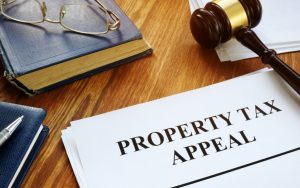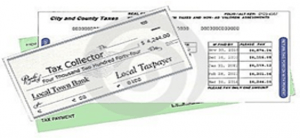Two Week Warning! April 3 Tax Appeal Deadline Looming in New Jersey – Should You File an Appeal?

- What Value is the Property Currently Assessed at?
Prior to starting the tax appeal process, you first need to know your property’s current assessment. Notices containing a property’s assessment are usually mailed by New Jersey municipalities in late January or early February, so you should have received that information several weeks ago. If you can’t find your notice, tax assessment records are available on this searchable website. It is also important to know the applicable ratio to the true value in your municipality for each year, which is used to “equalize” the assessment. Understanding your present assessment is the first step in determining whether your property is being over-assessed. And it can be especially tricky in towns where the “equalization” ratio is less than 100%, because the assessment may give a property owner a false sense of comfort that he or she is being assessed fairly when, in fact, the equalized assessment indicates that the property is OVER assessed and ripe for an appeal. The 2023 equalization ratios are published by the New Jersey Division of Taxation and are available here. For instance, the equalization ratio for 2023 in the City of Jersey City is 82.91 percent, meaning that properties are, on average, assessed at 82.91% of their current market value. This would mean that a property with a $500,000 assessment is intended to represent a market value of about $603,000.
- When was the Property Last Reassessed?
In many cases, assessments lag behind current real estate market trends. If your property was last assessed three years ago and markets have deteriorated since then, it may be beneficial to file a tax appeal.
- Is the Property Currently Under-Assessed?
In recent years, it has been common for many New Jersey real estate values to have increased since they were last assessed. While the equalization ratio is intended to provide an accurate way of adjusting assessments to reflect these types of changes in market values, the ratio is not always correct and it is possible that properties will become under-assessed. In such cases, filing a tax appeal could potentially increase your property tax assessment. It’s crucial to be aware of market behaviors to ensure that you don’t wind up with a higher tax bill.
- What Have Similar Properties Sold for Recently?
Sales of similar properties are generally the best indicators of a property’s value, at least for residential properties. When presenting an appeal to a County Tax Board or the New Jersey Tax Court, providing salient evidence is essential. In order to do so, you need to find recent comparable sales in your area. If you can find strong “comparables” to support your claim and can prove that the assessment is incorrect (the taxpayer has the burden of overcoming the presumption that the assessment is correct), then you may be able to prevail.
- Should I Look for Assistance?
Property tax appeals can often be complicated and time-consuming. In order to be successful, it’s important that you’re compliant with state-sanctioned deadlines and procedures. In cases where thousands of dollars may be on the line, it may be prudent to seek outside help. An experienced property tax appeal attorney can provide assistance by ensuring your tax appeal is filed appropriately and supported by competent evidence. In New Jersey, appeals need to be filed on or before April 3rd this year, unless the municipality is undergoing a town-wide revaluation or reassessment, in which event the filing deadline for an appeal will be May 1, 2023. This, and other specific procedures, can often cause headaches for folks who try to appeal their own taxes without hiring experienced counsel or without at least familiarizing themselves with some of the rules and regulations. That’s why it is critical for New Jersey property owners to know the applicable rules or to work with someone who does!
For more information on whether you might qualify for a reduction in your 2023 property tax assessment, feel free to fill out this form to download our white paper, or send us an email at info@mrod.law.
But remember – the deadline is (probably) two weeks away — so don’t wait!








